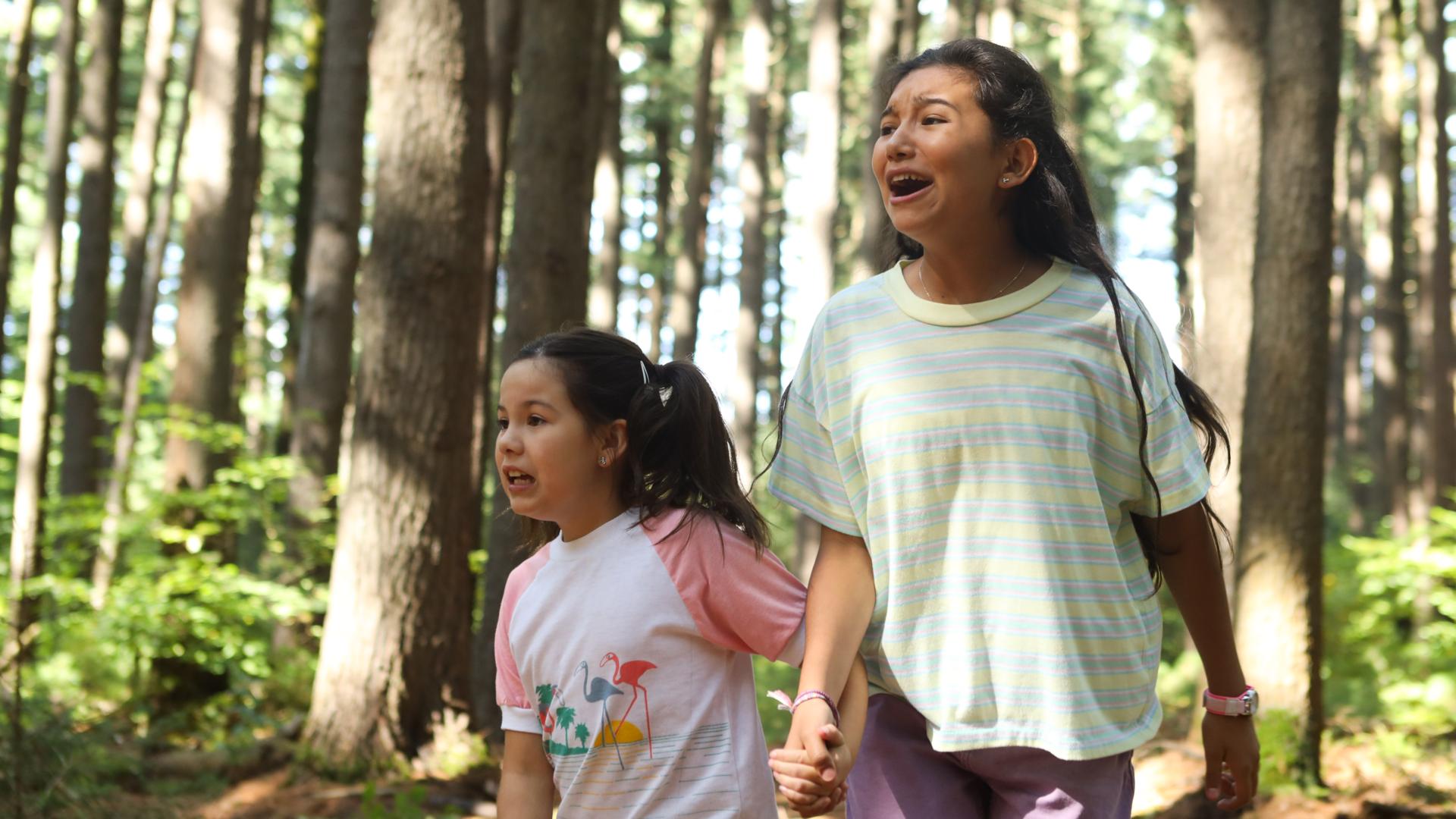
Do you remember the first time you said f*ck? For many, this was an exhilarating yet unfamiliar sensation, the release of frustration you might have been surprised you had, which you'll become much more acquainted with in your later teen years. Saying f*ck for the first time feels like a transition, a turning point from which a small, yet somehow significant, amount of innocence is lost. In the solitude of her childhood home, Tekehentahkhwa (nicknamed “Beans”) says f*ck for the first time, and we feel a connection to this young girl becoming a teenager. Although this scene presents a common experience for children on the edge of puberty, Tekehentahkhwa’s specific teen frustrations are extremely unique, as she is living through a war between Canadians and her tribe: the 1990 Oka Crisis.
“I HATE WHITE PEOPLE”, she declares in a moment of confrontation with her mother, and this statement is proved utterly valid by the archival footage woven throughout the film, including horrifying racist statements from white Canadians such as a man stating, “I hope they all die, I don’t give a sh*t if they all die”. Throughout BEANS, the viewer follows Tekehentahkhwa throughout the summer of 1990, empathizing with her anger towards the situation that the white adults surrounding her have put her and her family in. Much like the experience of being a young teen, the summer, and the conflict, seems to last forever—Tekehentahkhwa’s mother appears eternally nine months pregnant, relationships with fellow Native teens begin and fall apart all within the same few months. Throughout the film, the word f*ck is stated over and over, becoming a symbol for Tekehentahkhwa’s agency to learn how to fight, and to stand up for herself against her oppressors. A crucial viewing for teens and adults alike, BEANS unpacks and discusses the often ignored history of violence against Native people, both relevant in Quebec and around the world.
—Emily Eddy, Guest Festival Shorts Programmer MdFF 2021
Appropriate for viewers age 15+
Content Consideration: Depictions of racialized violence and language, sexual harrassment, self, harm and underage drinking
After the screening there will be a live virtual Q&A with Writer/Director Tracey Deer moderated by MdFF Artistic Director, Christy LeMaster.
- Year2020
- Runtime92 minutes
- LanguageEnglish, French, Mohawk
- CountryCanada
- NoteEnglish, French, and Mohawk with English subtitles
- DirectorTracey Deer
- ScreenwriterTracey Deer & Meredith Vuchnich
- ProducerAnne-Marie Gélinas
- Executive ProducerMeredith Vuchnich, Justine Whyte
- CastKiawentiio Tarbell, Rainbow Dickerson, Violah Beauvais, Paulina Alexis, Joel Montgrand, D’Pharaoh Woon-A-Tai
- CinematographerMarie Davignon
- EditorSophie Farkas Bolla
- Production DesignAndré Chamberland
- ComposerMario Sévigny
- Sound DesignSylvaine Belemare
Do you remember the first time you said f*ck? For many, this was an exhilarating yet unfamiliar sensation, the release of frustration you might have been surprised you had, which you'll become much more acquainted with in your later teen years. Saying f*ck for the first time feels like a transition, a turning point from which a small, yet somehow significant, amount of innocence is lost. In the solitude of her childhood home, Tekehentahkhwa (nicknamed “Beans”) says f*ck for the first time, and we feel a connection to this young girl becoming a teenager. Although this scene presents a common experience for children on the edge of puberty, Tekehentahkhwa’s specific teen frustrations are extremely unique, as she is living through a war between Canadians and her tribe: the 1990 Oka Crisis.
“I HATE WHITE PEOPLE”, she declares in a moment of confrontation with her mother, and this statement is proved utterly valid by the archival footage woven throughout the film, including horrifying racist statements from white Canadians such as a man stating, “I hope they all die, I don’t give a sh*t if they all die”. Throughout BEANS, the viewer follows Tekehentahkhwa throughout the summer of 1990, empathizing with her anger towards the situation that the white adults surrounding her have put her and her family in. Much like the experience of being a young teen, the summer, and the conflict, seems to last forever—Tekehentahkhwa’s mother appears eternally nine months pregnant, relationships with fellow Native teens begin and fall apart all within the same few months. Throughout the film, the word f*ck is stated over and over, becoming a symbol for Tekehentahkhwa’s agency to learn how to fight, and to stand up for herself against her oppressors. A crucial viewing for teens and adults alike, BEANS unpacks and discusses the often ignored history of violence against Native people, both relevant in Quebec and around the world.
—Emily Eddy, Guest Festival Shorts Programmer MdFF 2021
Appropriate for viewers age 15+
Content Consideration: Depictions of racialized violence and language, sexual harrassment, self, harm and underage drinking
After the screening there will be a live virtual Q&A with Writer/Director Tracey Deer moderated by MdFF Artistic Director, Christy LeMaster.
- Year2020
- Runtime92 minutes
- LanguageEnglish, French, Mohawk
- CountryCanada
- NoteEnglish, French, and Mohawk with English subtitles
- DirectorTracey Deer
- ScreenwriterTracey Deer & Meredith Vuchnich
- ProducerAnne-Marie Gélinas
- Executive ProducerMeredith Vuchnich, Justine Whyte
- CastKiawentiio Tarbell, Rainbow Dickerson, Violah Beauvais, Paulina Alexis, Joel Montgrand, D’Pharaoh Woon-A-Tai
- CinematographerMarie Davignon
- EditorSophie Farkas Bolla
- Production DesignAndré Chamberland
- ComposerMario Sévigny
- Sound DesignSylvaine Belemare